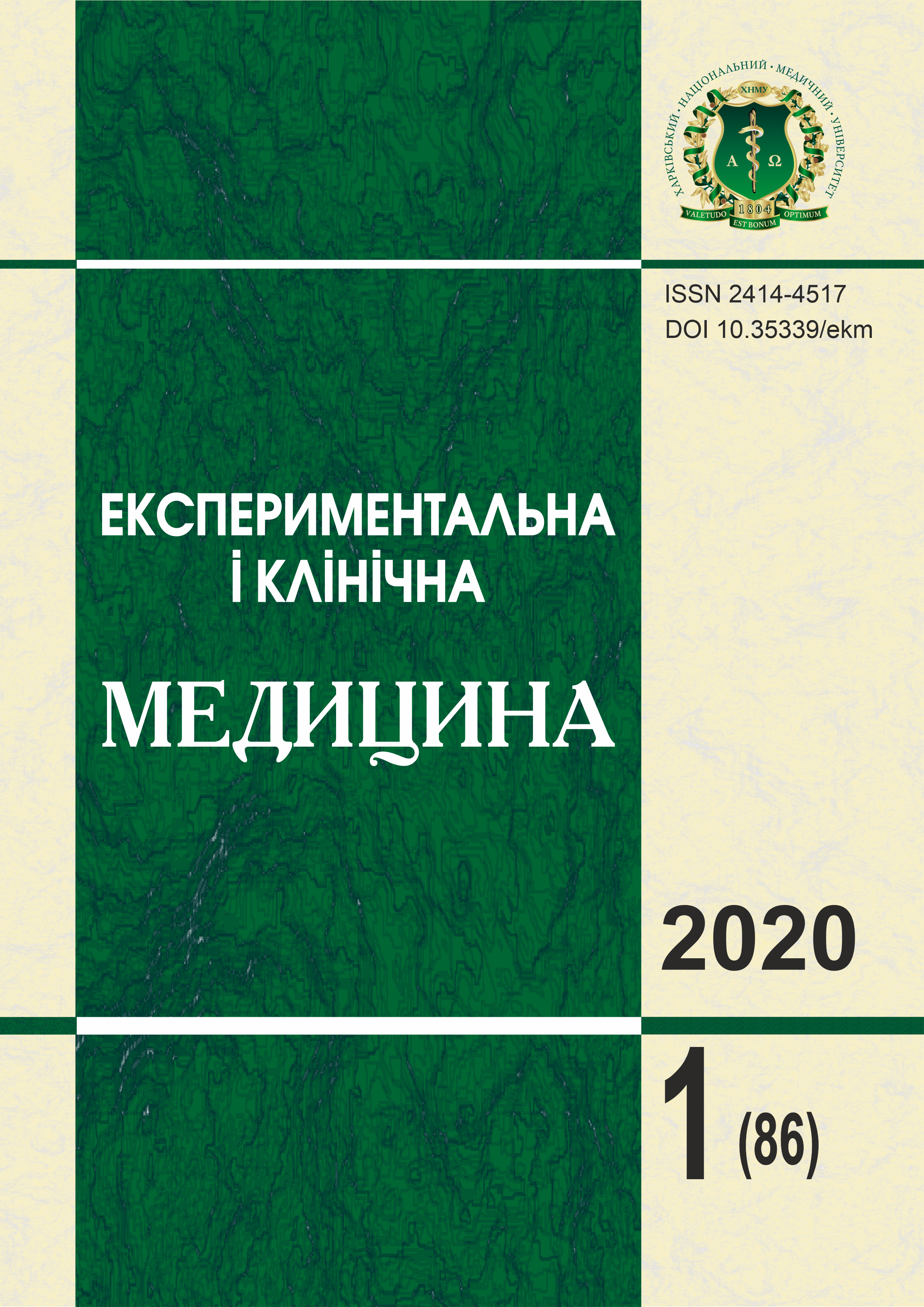Abstract
362 patients with cognitive impairment in depressive disorders were examined: 123 patients with recurrent depressive disorder (RDD), 141 patients with bipolar affective disorder (BAD) and 98 people with prolonged depressive reaction (PDR). It was found that cognitive dysfunctions were less pronounced in patients with PDR, than in patients with RDD and BAR (p<0,035). Cognitive dysfunctions in depressive disorders was underlined by the presence of disorders in the mental sphere, in the sphere of attention, executive, visual-spatial and linguistic functions. The differential features of cognitive impairment in patients with RDD, BAR and PDR are highlighted and it should be taken during conducting differential diagnosis of cognitive impairment in depressive disorders.
Keywords: patients with cognitive impairment, depressive disorders, cognitive dysfunctions, recurrent depressive disorder: bipolar depressive disorder, prolonged depressive reaction.
References
Maruta, N. O., Panko, T. V., Fedchenko, V. Yu., Semikina, O. Ye., Kalenska, H. Yu., Terenkovskyi, D. I. (2017). Diahnostychni kryterii depresyvnykh rozladiv na etapakh nadannia medychnoi dopomohy [Diagnostic criteria of depressive disorders at the stages of medical care]. Ukrainskyi visnyk psykhonevrolohii - Ukrainian Bulletin o f Psychoneurology, 25, 1(90), 135 [in Ukrainian].
Cusi, A., Nazarov, A., Holshausen, K., Macqueen, G., McKinnon, M. (2012). Systematic review of the neural basis of social cognition in patients with mood disorders. J Psychiatry Neurosci, 37(3), 154-169. DOI: 10.1503/jpn. 100179. PMID: 22297065. PMCID: PMC3341408.
Maruta, N. O., Panko, T. V., Kalenska, H. Yu. (2018). Novi mozhlyvosti terapii kohnityvnykh ta depresyvnykh rozladiv pry dystsyrkuliatomii entsefalopatii [New possibilities of therapy of cognitive and depressive disorders in dyscirculatory encephalopathy]. Ukrainskyi visnyk psykhonevrolohii - Ukrainian Bulletin o f Psychoneurology, 26, 4(97), 91-100 [in Ukrainian].
Brzezicka, A. (2013). Integrative deficits in depression and in negative mood states as a result of fronto-parietal network dysfunctions. Acta Neurobiol Exp, 73(3), 313-325. PMID: 24129481.
Fehnel, S. E., Forsyth, B. H., Di Benedetti, D. B., Danchenko, N., Francois, C., Brevig, T. (2016). Patient centered assessment of cognitive symptoms of depression. CNS Spectr, 21(1), 43-52. DOI: 10.1017/S1092852913000643. PMID: 24067243.
Iverson, G. L., Lam, R. W. (2013). Rapid screening for perceived cognitive impairment in major depressive disorder. Ann Clin Psychiatry, 25(2), 135-140. PMID: 23638444.
McIntyre, R. S., Lophaven, S., Olsen, C. K. (2014). A randomized, double-blind, placebo-controlled study of vortioxetine on cognitive function in depressed adults. Int J Neuropsychopharmacol, 17(10), 1557-1567. DOI: 10.1017/S1461145714000546. PMID: 24787143. PMCID: PMC4162519.
Azimova, Yu. E. (2017). Depressiya i kognitivnye narusheniya: opyt ispol’zovaniya vortioksetina v nevrologicheskoi praktike [Depression and cognitive impairment: experience with vortioxetine in neurological practice]. Meditsinskii sovet - Medical advice, 11, 36-39 [in Russian].
McIntyre, R. S., Cha, D. S., Soczynska, J. K., Woldeyohannes, H. O., Gallaugher, L. A., Kudlow, P. et al. (2013). Cognitive deficits and functional outcomes in major depressive disorder: determinants, substrates, and treatment interventions. Depress. Anxiety, 30(6), 515-527. DOI: 10.1002/da.22063. PMID: 23468126.
Roiser, J. P, Sahakian, B. J. (2013). Hot and cold cognition in depression. CNS Spectr, 2013. 18 (3). 139-149.
Greer, T. L., Kurian, B. T., Trivedi, M. H. (2010). Defining and measuring functional recovery from depression. CNS Drugs, 24(4), 267-284. DOI: 10.2165/11530230-000000000-00000. PMID: 20297853.
Buist-Bouwman, M. A., Ormel, J., de Graaf, R., de Jonge, P., van Sonderen, E., Alonso, J. et al. (2008). Mediators of the association between depression and role functioning. Acta Psychiatr. Scand, 118(6), 451-458. DOI: 10.1111/j.1600-0447.2008.01285. PMID: 18853945. PMCID: PMC3659780.
Reisberg, B., Ferris, S. H., de Leon, M. J., Crook, T. (1982). The global deterioration scale for assessment of primary degenerative dementia. American Journal o f Psychiatry, 139, 1136-1139. DOI: 10.1176/ajp.139.9.1136. PMID: 7114305.
Nasreddine, Z. S., Phillips, N. A., Bedirian, V., Charbonneau, S., Whitehead, V., Collin, I. et al. (2005). The Montreal Cognitive Assessment, MoCA: a brief screening tool for mild cognitive impairment. J Am Geriatr Soc, 53(4), 695-699. DOI: 10.I111/j.1532-5415.2005.53221. PMID: 15817019.
Mioshi, E., Dawson, K., Mitchell, J., Arnold, R., Hodges, J. R. (2006). Addenbrooke’s Cognitive Examination Revised (ACE-R): a brief cognitive test battery for dementia screening. Int J Geriatr Psychiatry, 21(11), 1078-1085. DOI: 10.1002/gps.l610. PMID: 16977673.

